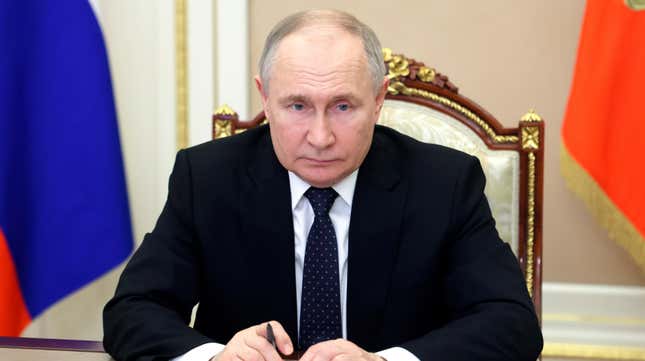
A military court in Russia sentenced a spokesperson for Meta to six years in prison on Monday, according to a new report from the English-language Moscow Times. Andy Stone was convicted in absentia for the “justification” of terrorism after the Facebook parent company changed its rules about what’s considered violent speech shortly after Russia invaded Ukraine in 2022.
The Russian military court first opened a criminal inquiry into Meta on March 11, 2022, according to U.S.-government-run news outlet Radio Free Europe, less than a month after Russia invaded Ukraine in February of that year. The inquiry was a response to Meta’s policy change that allowed more violent rhetoric about Russia’s invasion on Facebook and Instagram, two platforms that were subsequently banned in Russia.
Stone announced the loosened speech restrictions on March 10, 2022, which apparently made him a target for the Russian authorities.
“As a result of the Russian invasion of Ukraine we have temporarily made allowances for forms of political expression that would normally violate our rules like violent speech such as ‘death to the Russian invaders.’ We still won’t allow credible calls for violence against Russian civilians,” Stone tweeted.
The new policy also allowed for users to call for the death of Russian President Vladimir Putin and Belarusian President Alexander Lukashenko, according to a 2022 article from Reuters. Stone would later clarify that while the company was allowing more violent speech on its platforms to account for frustration in Ukraine at a violent invasion, any calls for violence against Russian civilians were still strictly banned.
Calls for violence against Russian soldiers were only permitted by people living in a dozen countries and didn’t include anyone living in the U.S., according to Reuters: Armenia, Azerbaijan, Estonia, Georgia, Hungary, Latvia, Lithuania, Poland, Romania, Russia, Slovakia, and Ukraine.
Stone should be safe from the Russian courts, provided he doesn’t decide to take a vacation in Moscow anytime soon. Facebook founder and Meta CEO Mark Zuckerberg has been banned from entering Russia since April 2022.
Russia’s invasion of Ukraine has resulted in tens of thousands dead on both sides, according to the BBC, and hundreds of thousands more wounded. Russian President Vladimir Putin first announced the war as a “special military operation,” suggesting it would be a very limited incursion into the country. But it’s been over two years and there’s absolutely no end in sight.
Control of information on social media has become increasingly important to governments in the 2020s, especially when war breaks out, from Gaza to Ukraine. And while traditionally the U.S. has promoted an “open internet,” that denounces censorship, that attitude changed recently when China-based TikTok exploded in popularity in the U.S., with over 170 million Americans using the app.
Meta didn’t immediately respond to questions emailed on Monday. Gizmodo will update this post if we hear back.